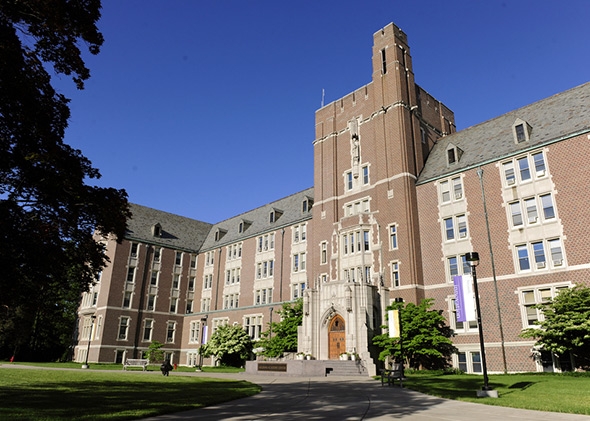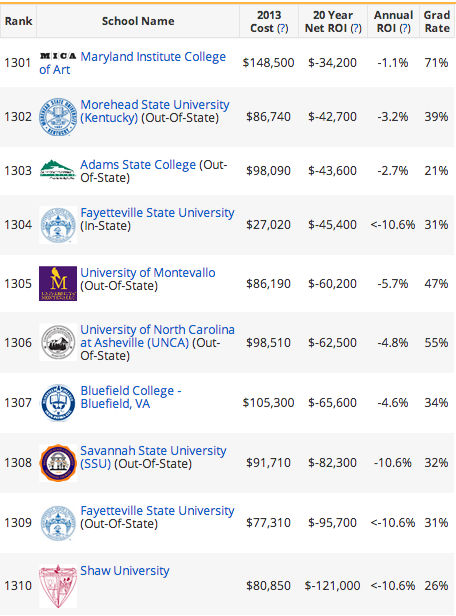What College Will Leave You Poorest?

Nazareth College/Flickr
Every year, the salary comparison website Payscale.com gathers up its massive trove of user generated data and ranks America’s colleges and universities based on which schools make their students richest. Or, to be a little more technical about it, the site calculates each institution's total return on investment, once you take the cost of attendance into account.
And every year, the results are roughly the same. Turns out, once you take financial aid into account, going to a prestigious liberal arts college or research university is a great use of four years. So is going to a reasonably priced state school with a great tech or engineering program—or, for that matter, an extremely expensive private university with a great tech or engineering program.
All of which is pretty intuitive. Ivy League universities tend to select kids who will have higher potential earning power in the first place, because they’re bright and have supportive families. Fancy employers such as investment banks and tech giants also love to recruit from them. Tech and engineering, meanwhile, tend to be the highest paid undergraduate majors. And because this ranking doesn’t include graduates who earn advanced degrees later on—so no doctors, lawyers, or MBAs—the advantage is naturally going to lie with the tech schools.
So as a policy nerd, to me the most interesting part of Payscale’s rankings isn’t the top of the list: It’s the bottom. The site finds almost two-dozen schools where the average graduate—not dropouts, mind you, but students who finish their degree—will probably lose money on their educations, because their earning power won’t increase enough to justify the cost of tuition. To be blunt, these schools make students poorer. And we’re talking about traditional colleges, not nefarious for-profits. Here are the bottom 10, to give you a flavor (one repeats for both in-state and out-of-state students):

And these are just the worst performers. There are many more schools where the average return on a degree is low enough that students would be better off putting their money in stocks or bonds.
To be clear, Payscale is not performing the most precise analysis imaginable. We’re talking about broad averages based on user submitted data (the site does let you break down ROI by major, for what it’s worth). And crucially, Payscale doesn’t compare the alums of low-ranked colleges to demographically similar high school grads. It compares them to the earning power of the median high school graduate—and some of the students graduating from Shaw University or the University of Montevallo might have weaker skills than the typical kid who goes into the world with just a high school diploma.
But it does reinforce why we so desperately need high-quality consumer information about higher education. In the past, the higher-ed lobby has stood in the way of allowing the Department of Education to track college graduates over the long term to keep tabs on their lifetime earnings—what’s known as a “unit-record system.” And as a result, we have to rely on less complete government surveys, or less-than-ideal crowdsourced databases like Payscale's. As a result, some students are going into college financially blind, and they could be ending up poorer for it—literally.

